From Strauss to Schifrin to Schubert, an eclectic program from Muti & CSO
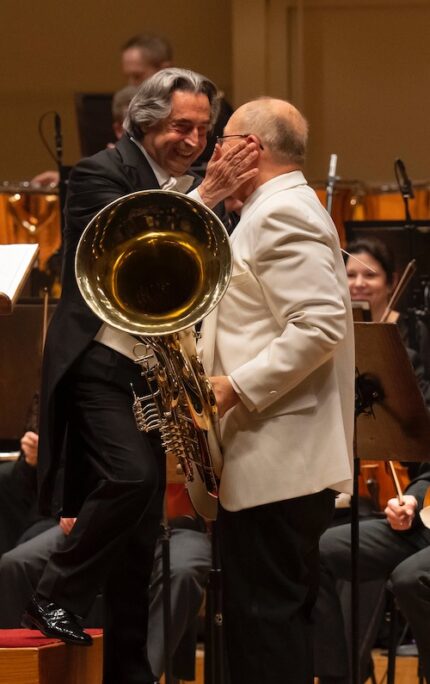
The penultimate program of Riccardo Muti’s 13-season reign as music director of the Chicago Symphony Orchestra outwardly embodies the standard overture-concerto-symphony boilerplate.
Yet Thursday evening’s concert at Orchestra Hall was anything but predictable. Apart from Schubert’s finest symphony, there was a rarely heard overture, the Chicago premiere of a concerto for an uncommon solo instrument, and a surprise bonus piece mining music from a 1960’s TV series.
Indigo and the Forty Thieves was the first of Johann Strauss Jr.’s fifteen operettas, premiered in 1871. The Overture is prime Muti territory, the kind of light, quirky curtain-raiser that the CSO music director can transform into high art. From the quiet opening timpani notes, Muti’s alert dynamic marking and quicksilver tempo switches put across all the scintillating energy and offbeat charm of Strauss’s music and scoring— the initial mock-serious appearance of the march theme, the humorous, isolated percussion dings, martial swagger when the full brass is unleashed, and the vivacity and whirlwind brilliance of the closing section.
Muti has been gracious in giving CSO players solo opportunities to shine over his long tenure, and not just high-profile string and woodwind principals. Backbench first chairs have also been given rare opportunities in the solo spotlight, including David Herbert who performed William Kraft’s Timpani Concerto No. 1 under Muti last month.
Likewise, on Thursday night, Gene Pokorny, CSO principal tuba for 34 seasons, took center stage for Lalo Schifrin’s Tuba Concerto.
The Argentina-born composer is best known for his jazz-tinged TV and film scores; among the latter are Cool Hand Luke, Bullitt, Dirty Harry and Voyage of the Damned. Schifrin—who will turn 91 next week—has in recent years concentrated on concert works, including a 2016 Guitar Concerto and the present Tuba Concerto, which was written for Pokorny and premiered by him with the Redlands (California) Symphony in 2018.
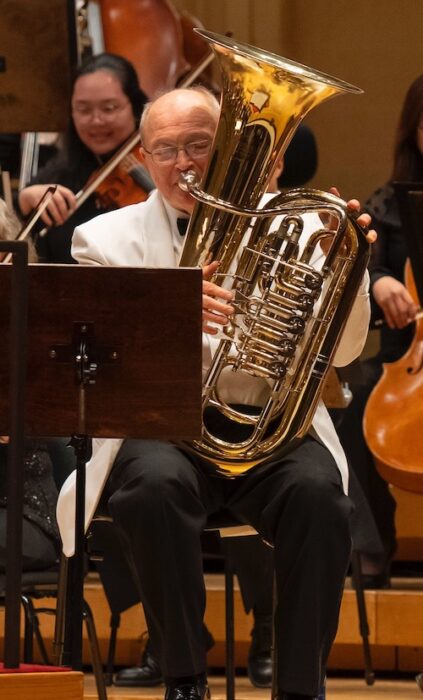
Cast in three brief movements, Schifrin’s concerto is scored for a silver-screen-size orchestra, including four horns, harp, celesta, harpsichord and large percussion battery. The opening movement (Andante animato) presents a jaunty, neo-Baroque busyness, followed by an amiable Andantino and jazz-colored Allegro molto finale.
Schifrin’s concerto offers engaging themes and is scored with a Hollywood veteran’s skill and panache. Yet despite its brevity, the work comes across on first hearing as rather ramshackle, lurching from section to section, not always convincingly.
Even with that, Schifrin’s Tuba Concerto served as a superb showcase for Pokorny’s estimable musicianship. The composer does not make it easy for the soloist, packing the score with rapid running passages and technical challenges. Pokorny surmounted all the difficulties of Schifrin’s minefield with fluent and understated bravura. In the slow movement’s extended cadenza, Pokorny encompassed subterranean Leviathan growls as surely as the lyrical passages, which he delivered with the supple, soaring vocalism of a great operatic bass.
Muti’s incisive direction tightened up the rambling narrative and the orchestra musicians provided fiery, fully committed playing for their popular colleague. Pokorny received enthusiastic ovations from the audience and colleagueses, with Muti giving Pokorny his patented affectionate face pats.
The 15-minute concerto left room for a concertante bonus of Schifrin’s most indelible music, the theme for the TV series Mission: Impossible. Muti set the tempo with the opening bars and then stepped off the podium to watch and listen with bemusement as the orchestra delivered a boisterous account of Schifrin’s famous music, Pokorny serving up gritty urban tuba solos. Following the ensuing ovations, the good-humored maestro gamely carried Pokorny’s tuba offstage.
The evening concluded with the Symphony No. 9, Schubert’s finest achievement in the genre.
Music of Franz Schubert has figured significantly in Muti’s Chicago oeuvre, including a complete cycle of Schubert symphonies in 2014 as well as the Mass in A flat that year and the Mass in E flat in 2018.
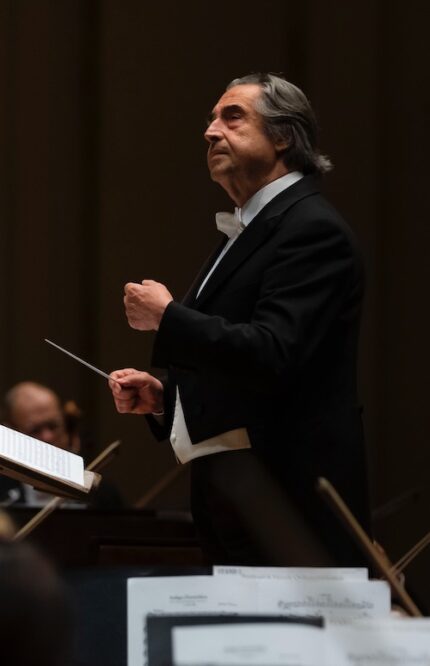
Thursday’s performance of Schubert’s Ninth was interpretively in line with Muti’s somewhat revisionist take from nine years ago, focused more on Classical poise rather than burgeoning Romanticism. The transparency was as impressive as previously with Muti’s meticulous balancing ensuring that every key instrumental strand was audible.
Yet this time the overall results were less convincing. Muti usually finds a way to make textural fidelity practical in a live performance. But Thursday night the focus on quieter dynamics and pianissimos seemed fussy—zeroing in on dynamic detailing to an extent that sacrificed an essential drive and vitality. That feeling was exacerbated by the stately tempo of the opening movement; with the conductor emphasizing the non troppo more than the Allegro, the musical narrative wasn’t always sustained at such a relaxed pace.
William Welter’s oboe playing in the Andante brought some welcome vibrancy to this soft-focus Schubert. With contrasts ironed out, the passage wherein the striding confidence of the main theme collapses upon itself wasn’t nearly as jarring as it should be.
The latter movements went better. The Scherzo was put across with ample energy, though here too the middle section needed greater richness to make its full contrasting effect. Muti is not one to disappoint in finales and he led the concluding movement with the requisite spirit and alacrity, even if ultimately this was good Schubert rather than “Great.”
The program will be repeated 1:30 p.m. Friday and 8 p.m. Saturday. cso.org
Posted in Performances

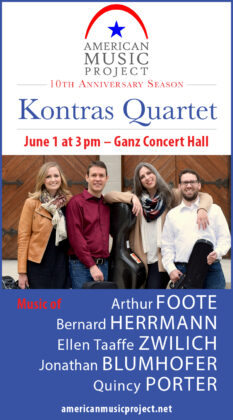

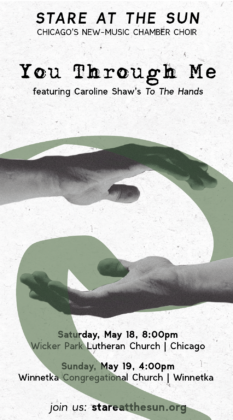
Posted Jun 16, 2023 at 5:03 pm by Jeff R
As for Friday’s matinee, the Strauss Jr. and, in particular, the Schubert were excellent. The Schubert 9 was the best Muti performance I’ve seen in a very long time (at a minimum since the pandemic).
As for the Schifrin, the tuba concerto did not work. I’m not a musician; I’m a classical listener but I couldn’t wait for it to get over. This has nothing to do with Pokorny’s skills or the additional orchestration… I don’t think the instrument could accommodate the shifts and speed for which it was written.
Posted Jun 17, 2023 at 12:02 pm by Tim
The punch line can be extrapolated as the summary of the Muti years. Good at times, not great.
Posted Jun 18, 2023 at 6:04 pm by danny
I was in the front row on Thursday night. I enjoyed everything. They sounded amazing.
Posted Jun 19, 2023 at 12:58 am by Steven J Sherman
I wouldn’t have come all the way from Munich if I didn’t expect Muti to show me things in Schubert’s Ninth that I had not heard before. I was not disappointed.
It is rare these days that I don’t have to make a mental adjustment to get in tune with a conductor’s tempi. Yesterday evening each movement felt right from the very beginning.
I have never heard a Muti performance that I didn’t find convincing, even though it was not the way I’d have conducted it, if only I could conduct.
And I wish Chicago a successor who is equally worthy of your outstanding orchestra.